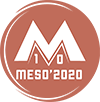Ever since its first hayday in the 1960s, ethnoarchaeology has been a prominent player in the scientific quest to understand and explain hunter-gatherer pasts. Processual archaeologists established the approach within their positivist deductive frameworks in order to bridge the patchy archaeological record and the past reality of hunter-gatherer life worlds. Later, post-processual critique began to question the legitimacy of employing ethnographic analogy in this way, and the focus shifted more on the self-reflection of the researcher's position and frame of experience and its impact on scientific interpretations. Today, ethnoarchaeological approaches are controversially evaluated in their very legitimacy, and fundamental questions regarding the methodological applicability of ethnographic infromation to explain past conditions as well as more general ethical aspects of research with and within indigenous communities remain open.
Much of ethnoarchaeological work in contemporary communities across the globe derived from research questions in Palaeolithic archaeology. In Mesolithic research, too, ethnoarchaeological approaches and analogies have been employed in various fields, ranging from the study of settlement and mobility systems in boreal forest, of temporary dwellings, their construction and cosmological organization, of shell middens and burial practices, to wider anthropological reflections of human-nature relations, self and identity, etc. Currently new impulses broaden the view through postcolonialist debates, the rise of indigenous archaeologies, multivocal interpretation, the growing interest in multi-species systems, and the growing prominence of ethnoexpertise.
Against this background, the talk will explore how ethnoarchaeological approaches on Mesolithic hunter-gatherer pasts can go beyond the long-prevailing ethnocentristic modes of thought and research practice based on an “outsider” explorative view on communities “investigated”. Drawing on some examples from Siberia and North America, it will discuss options how to rather engage in a dialogue “with modern foreign societies about the [past] societies with whom we can no longer communicate”, as the German archaeologist U. Veit formulated.

 PDF version
PDF version
